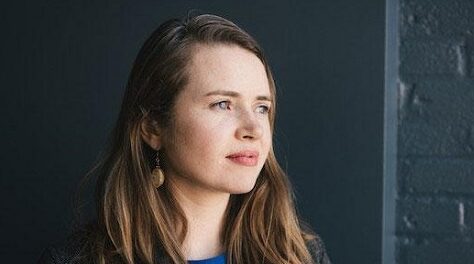Empowering Marginalized Artists
Introducing Liz Powers

Liz Powers makes dreams come true for struggling artists who have the talent but have physical limitations. It was during her social work when she ran art therapy group that she came across artists, some of them disabled, who yearned to take their work to market.
“I’ve worked in homeless shelters and disability centers for over 10 years when I got the idea to start art groups to alleviate the loneliness. With that, I realized there were already existing art groups all across the country, about 1,000 of them, and that quality, salable art was being produced every day in these groups! The issue was that the art wasn’t going anywhere after. Instead, it would just collect dust or be thrown out. This is where I realized the need for something like ArtLifting. ArtLifting gives these artists a previously nonexistent platform to sell their artwork.”
The Birth of ArtLifting
Liz established ArtLifting non-profit company in Boston in November 2013, together with her sibling Spencer Powers. It began with just four local artists in Boston, but soon grew to over 110 artists nationwide.
Every artist at ArtLifting has a unique perspective and style with their own back story based on their struggle and life experience. These backstories inspired countless communities to drive social change and embrace new talent in the art market.
Empowering Artists with Disabilities
Liz, who holds a Boston area Harvard Graduation under her belt, encourages the non-profit organization Artlifting created a platform for the sale of original masterpieces, prints, and license merchandise created by homeless and disabled people. Among them is Scott Benner, who suffers from a nerve condition and Jeff Roysdon, who deals daily with anxiety, as well as Tim Strouss, who is partially paralyzed.
Airlifting gives the artists an opportunity to generate sales and recognition for their work. Some of the artworks are showcased in corporations and institutions as part of their interiors and displayed for sale. These include offices and guest rooms in the likes of Glen & Company and the Ames Boston Hotel.
What Artists Earn
Liz’s ArtLifting stands as a ‘Public Benefit Corporation’ with every artist receiving 55% of the total profit from every art piece sold while 1% goes towards funding the art supply to art parties nationwide. ArtLifting uses the remaining 44% to sustain the mission and ensure the organization is financially secure.
“When I realized that there was no company similar, I knew that ArtLifting had to be founded. The infrastructure (art programs in shelters and disability centers) was already in place, and the artists were already creating art. The only thing missing was a marketplace for this art. ArtLifting gives these artists a platform to sell their artwork. My goal is to make their invisible talents visible and by doing so, change stereotypes. Instead of defining people by their circumstance, we should define them by their talent.”
Learn more about Artlifting and get involved.